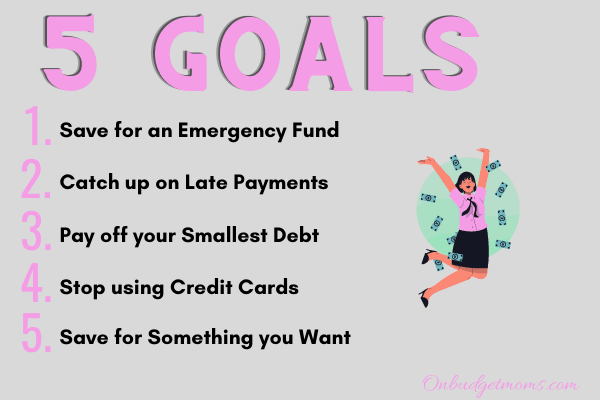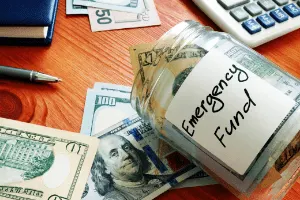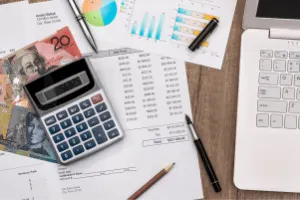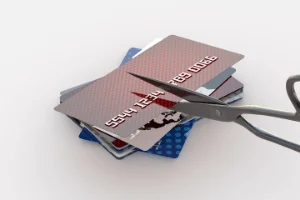Having smart short term financial goals can make life easier!

I think it is safe to say we all know we should have a family budget, however did you know that 1 out of 3 Americans do NOT have a budget? (source cbn news).
Though there could be many reasons why one would not have a budget, many think that having short and long term financial goals help people create and stick to a budget.
Since you have a goal to work towards it keeps you motivated and wanting to reach it!
What are short-term financial goals?
If we take a look at short-term goals in general, it is something we want to achieve within a short period of time. Now this could technically include today, this week, this month or even within a year or two. Which ever best suits your lifestyle, income and the specific financial goal. So a short-term financial goal is something you are saving a specific amount of money for within a short time frame.

What are Some Examples of short-term financial goals?
Having some examples of short-term goals can help you get an idea of what you might want.
- Down payment on a house
- Saving for a vacation
- Saving for a car
- Wedding
- Home repairs or renovations
- Credit card debt
- Holidays such as Christmas
- No-spend challenge
- Starting a budget
- Catch up on late payments
There are plenty more examples but that should give you a good idea of what short-term financial goals you can start setting for yourself.
5 smart Short-term financial goals you should have
1. Save for an emergency fund

This is a very important short-term goal that can make having a budget so much easier!
Most people cannot stick to a budget because some unexpected expense pops up and there goes their monthly budget, right out the window!
Once that happens they tend to lose faith in budgets and never start again. This is where an emergency fund can help.
The amount to save is entirely up to you and your financial situation, however most start out with $1,000 and that seems to be a good number.
If you need help saving for your emergency fund fast here is a great article on some unconventional ways to get your Emergency fund fast and without taking away from your monthly budget.
2. Catch up on late payments (if you have any, if not skip to number 3)

I think there would be a 50/50 chance that if you are reading this article you may be behind on some payments.
This is a very common problem that a lot of families run into but also seems to be a taboo topic.
Sometimes falling behind happens and unfortunately the current financial system does not help those who do fall behind catch up easily.
Since there are late fees, penalties and also the fact that most of these are monthly recurring, so if you miss one payment you then have double plus the extra fees!
This is also why I chose to put the emergency fund as #1 and not late payments. You could use your emergency fund for these situations in the future.
If you need help saving money to pay these off there are ways to do this even living on a low income. You can find out how to save money when you are broke HERE.
3. Pay off your smallest credit card debt or debt in general

This is a very smart short term goal that everyone should have if they are in debt. Imagine having zero debt, even having none other than your mortgage would be ideal!
Since these are short-term goals and not long-term financial goals, make sure you choose a small debt to pay off first.
4. Stop using credit cards

I know this one can be difficult especially if you live on a low income, I know how hard it is when you need groceries or to pay a bill.
Most of the time this is how debt starts for families, which is why not turning to credit cards for those quick fixes can help you stay clear of financial distress.
If you need some help staying away from credit cards there are tons of ways you can make extra money, or save money on groceries.
5. Save for something you want

Naturally this should be on your list, this will keep you motivated and once you reach that goal and get something you have been wanting it will feel like Christmas!
It can be anything small that you need to save money for, such as a new computer, makeup, hair appointment or new clothes.
Final thoughts on short-term money goals
Having these short term goals are very rewarding and can help you achieve your dreams, I highly recommend everyone has at least one short-term money goal to keep you financially motivated.
Frequently Asked Questions (FAQs)
What are good short term financial goals?
This really depends on the person and their situation, however a general answer to this question is that good short-term financial goals are those that better your finances and make your life easier and happier. So be sure to think about how the specific goal would impact your life if you achieved it.
What are short term financial goals for college students?
Some financial goals for college students could be any or all of the following:
- Get an emergency fund.
- Build credit.
- Save for a car (paid in full)
- Graduate debt free
- Start a side hustle
- Save for a vacation.
How to achieve short term financial goals?
The main way to reach your goals is to put away a small amount of money every paycheck.
However, if you have no extra money to save there are ways around it. You can save money using unconventional ways that don’t come out of your monthly budget. Learn more about how to save money in 30 days even if you are broke.
Related articles on saving money and budgeting:
5 MODERN FINANCIAL MISTAKES PEOPLE MAKE DAILY
7 HABITS OF PEOPLE WHO HAVE MASTERED SAVING MONEY
8 FREE BUDGET PRINTABLES YOU NEED IN 2021
50/30/20 RULE: THE EASIEST WAY TO BUDGET YOUR MONEY
